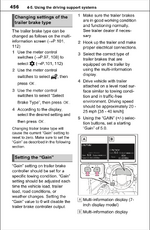So I've had my LC for just over 2 weeks now. Put on 1,400 miles ( ) and have noticed inconsistent breaking. What I'm specifically talking about it is if I'm slowing down from 45-50mph to 0 for a stoplight, depending on how I'm breaking, you'll feel a hump or like your skipping over something as the LC comes to a complete stop. The actual breaks are working just fine, but it feels like it's coming from the transmission. Now I also noticed this last month on a different 1958 LC that I test drove & didn't think much of it at the time (thought maybe its brand new and just needs to be broken in).
) and have noticed inconsistent breaking. What I'm specifically talking about it is if I'm slowing down from 45-50mph to 0 for a stoplight, depending on how I'm breaking, you'll feel a hump or like your skipping over something as the LC comes to a complete stop. The actual breaks are working just fine, but it feels like it's coming from the transmission. Now I also noticed this last month on a different 1958 LC that I test drove & didn't think much of it at the time (thought maybe its brand new and just needs to be broken in).
For context, this is my first hybrid vehicle I've ever owned. I'm coming from a 4Runner. I've also driven some of my families Teslas around so I know what regenerative breaking feels like.
My assumption is that these humps, jerky jolts during breaking is the electric/hybrid components either using regenerative breaking for charging the battery (maybe its switching in/out) or there's still energy from the electric motor trying to whine down? It doesn't happen every time, it's a strange feeling. I have the LC in normal drive mode.
For context, this is my first hybrid vehicle I've ever owned. I'm coming from a 4Runner. I've also driven some of my families Teslas around so I know what regenerative breaking feels like.
My assumption is that these humps, jerky jolts during breaking is the electric/hybrid components either using regenerative breaking for charging the battery (maybe its switching in/out) or there's still energy from the electric motor trying to whine down? It doesn't happen every time, it's a strange feeling. I have the LC in normal drive mode.


